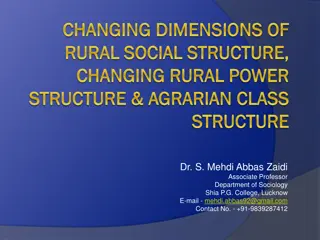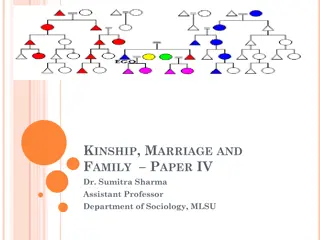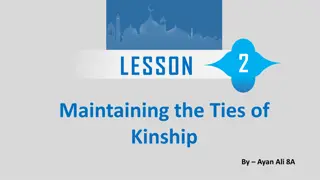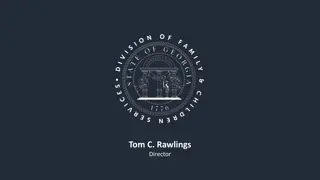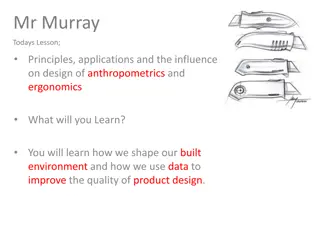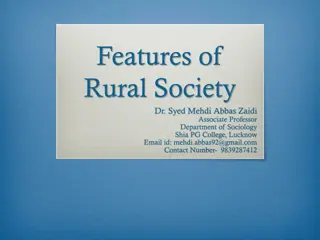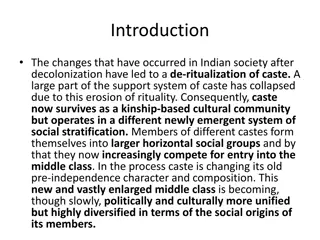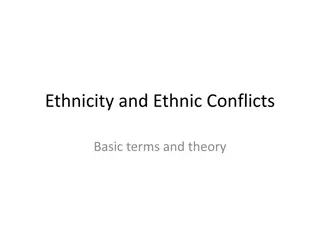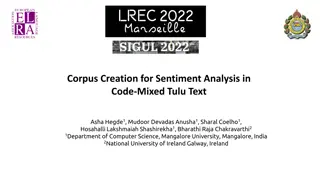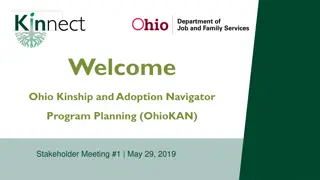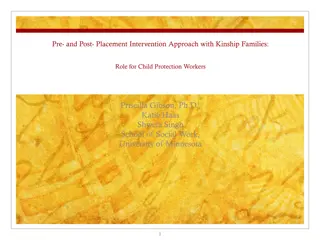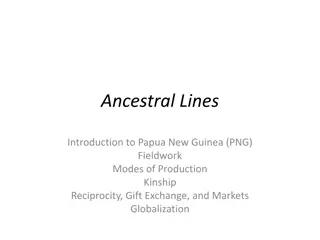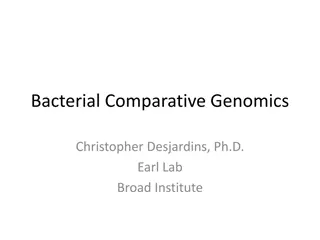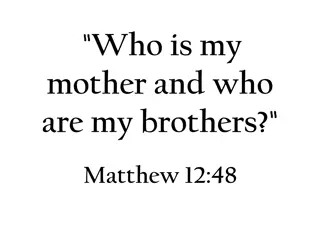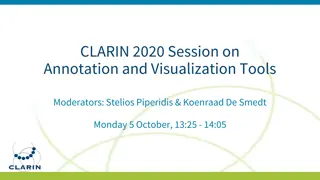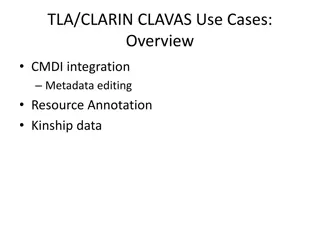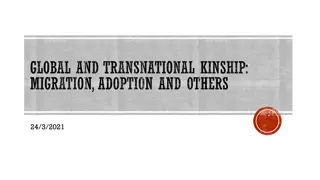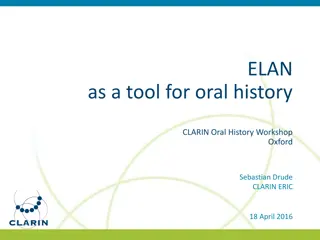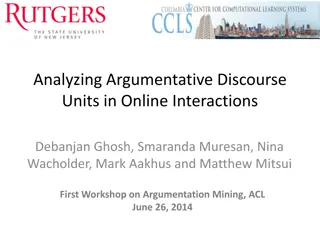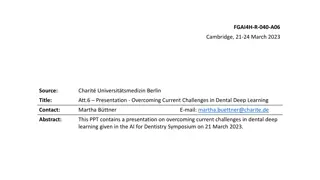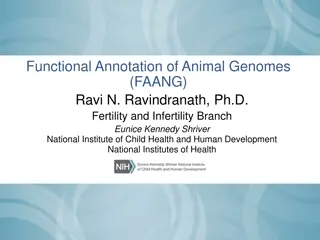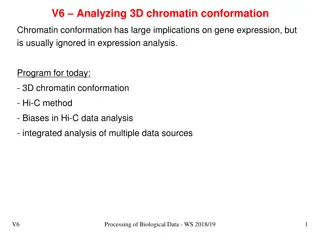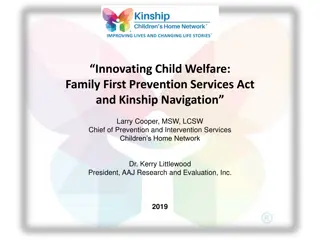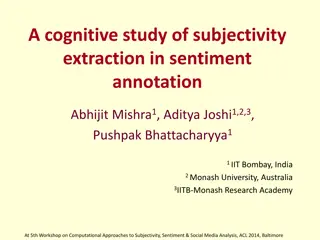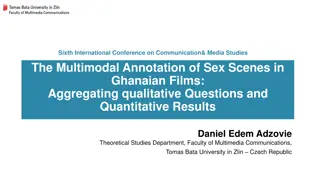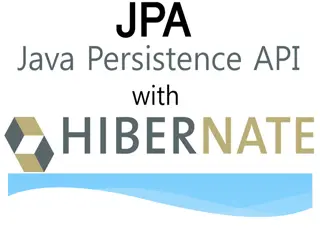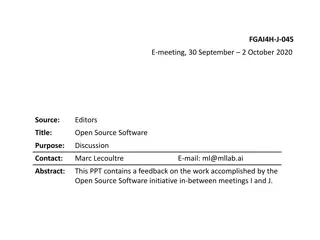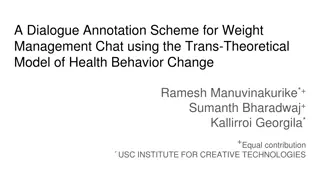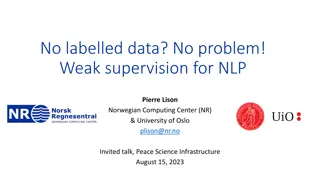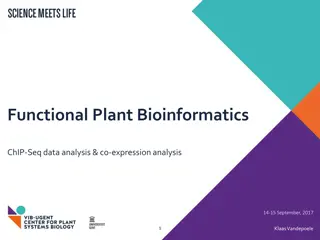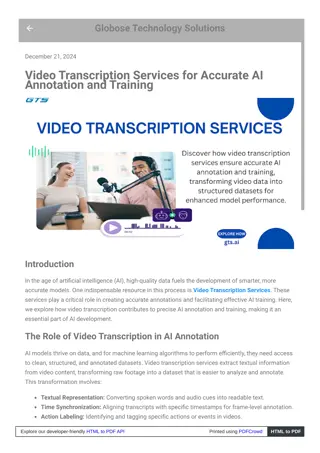Transforming Scientific Data Standardization with Large Language Models (LLMs)
Large Language Models (LLMs) to standardize scientific data, including data format standardization, automatic extraction of metadata, data annotation, data quality assessment, data cleaning, and documentation.
2 views • 5 slides
Integrating UDL and Social Annotation Through Hypothesis Workshop
Learn how to incorporate Universal Design for Learning (UDL) principles with social annotation using Hypothesis Workshop. Discover the benefits of social annotation, ways to align it with UDL, practical assignment examples, and engage in interactive sessions. Join the workshop to enhance student eng
0 views • 38 slides
Changing Dimensions of Rural Social Structure in India
Rural social institutions in India have deep historical roots, encompassing family, kinship, caste, class, and village structures. This complexity reflects a wide range of social norms, values, roles, and obligations. Changes in the caste system and the practice of jajmani are also highlighted, show
2 views • 21 slides
Iravati Karve - Renowned Anthropologist and Sociologist
Iravati Karve (1905-1970) was a distinguished anthropologist, sociologist, educationist, and writer known for her work on kinship, Indian culture, and the Mahabharata. Through her major works and analysis of kinship organization in India, Karve made significant contributions to understanding regiona
2 views • 14 slides
Understanding the Kanda System in Matrilineal Societies
The Kanda system was a key aspect of matrilineal descent groups that controlled land and kinship relations in C16 societies. Kandas had flexible structures, varying from hierarchical to egalitarian, with chiefs playing different roles. Key features included defined names, traditions, and autonomy in
2 views • 14 slides
Understanding Kinship, Marriage, and Family: Key Concepts and Readings
Explore the intricate web of social relationships that define kinship, marriage, and family structures in human societies. Delve into basic concepts such as consanguinity and affinity, kinship terminology, marriage rules, family composition, and changing patterns in India. Essential readings by reno
0 views • 12 slides
Understanding the Importance of Maintaining Family Ties in Islam
Explore the significance of maintaining ties of kinship in Islam through teachings and practices. Learn why nurturing relationships with family members is key to fostering harmony and unity in society, as emphasized by Prophet Muhammad. Discover the virtues of upholding kinship bonds and the rewards
1 views • 15 slides
Understanding Family Preservation Services in Child Welfare
Family Preservation Services (FPS) offer short-term, family-focused interventions to support at-risk children and families in crisis situations, aiming to prevent out-of-home placements due to neglect or abuse. FPS involve a continuum of community-based services designed to strengthen family stabili
0 views • 14 slides
Understanding Anthropometrics and Ergonomics in Design
Explore the principles, applications, and design influence of anthropometrics and ergonomics. Learn how data shapes our environment and enhances product quality. Discover the significance of anthropometric data and ergonomics in design, and engage in hands-on tasks to apply these concepts practicall
0 views • 9 slides
Understanding Features of Rural Society by Dr. Syed Mehdi Abbas Zaidi
Rural society, as explained by Dr. Syed Mehdi Abbas Zaidi, is characterized by agriculture as the primary occupation, dependence on nature, extended kinship groups, traditional practices, religious beliefs, joint family system, kinship dynamics, Jajmani system, homogenous culture, lack of specialize
0 views • 9 slides
Evolution of Caste in Post-Colonial Indian Society
Changes in Indian society post decolonization have led to the de-ritualization of caste, resulting in a shift towards a kinship-based cultural community operating in a new system of social stratification. Secularization of caste has detached it from ritual hierarchy and aligned it with competitive d
5 views • 10 slides
Understanding Ethnicity and Ethnic Conflicts
The concept of ethnicity involves both primordial and constructivist perspectives, with primordialists viewing it as an inherited identity and constructivists as a social construct based on fictive kinship. Perceived differences among ethnic groups can lead to conflicts, often rooted in historical e
0 views • 23 slides
Corpus Creation for Sentiment Analysis in Code-Mixed Tulu Text
Sentiment Analysis using code-mixed data from social media platforms like YouTube is crucial for understanding user emotions. However, the lack of annotated code-mixed data for low-resource languages such as Tulu poses challenges. To address this gap, a trilingual code-mixed Tulu corpus with 7,171 Y
0 views • 10 slides
Understanding Barrier Crimes for Foster Parents in Virginia
This presentation discusses barrier crimes in Virginia concerning individuals seeking to become kinship foster parents. It covers policy decisions, federal laws, time limits for certain crimes, exceptions, and waivers. The content highlights the differences between federal and Virginia laws, the aut
0 views • 25 slides
Understanding Private Fostering Arrangements and Responsibilities
Private fostering arrangements involve caring for a child without local authority involvement, lasting 28 days or more. These arrangements differ from approved foster care and kinship care, raising concerns about safeguarding vulnerable children. Reasons for private fostering range from educational
0 views • 9 slides
Ohio Kinship and Adoption Navigator Program Overview
The Ohio Kinship and Adoption Navigator Program, known as OhioKAN, aims to develop a statewide program for kinship and adoption support. The program involves researching existing models, forming a stakeholder group, utilizing Implementation Science Approach, conducting regional town hall meetings, a
0 views • 18 slides
Pre- and Post-Placement Intervention Approach with Kinship Families
This research study explores direct service practices with kinship families, focusing on themes post Breakthrough Series Collaborative. The study involves analyzing case reviews and conducting personal interviews to identify emerging themes in child protection work with kinship caregivers. The purpo
0 views • 16 slides
Exploring Papua New Guinea: Fieldwork and Cultural Diversity
Delve into the rich cultural tapestry of Papua New Guinea through discussions on fieldwork modes of production, kinship, reciprocity, gift exchange, and markets. Gain insights into the unique challenges faced by rainforests in Amazon, Central Africa, and Southeast Asia, emphasizing their crucial rol
0 views • 6 slides
Understanding Bacterial Comparative Genomics: A Comprehensive Overview
Delve into the realm of bacterial comparative genomics with insights on terminologies, assembly methods, annotation processes, and two key approaches to microbial genomics. Explore the basics of genomics terminology, assembly-based and variant-based analyses, as well as annotation methods for protei
0 views • 41 slides
Contemplating the Meaning of Family in Matthew 12:46-50
Exploring the biblical passage in Matthew 12:46-50 where Jesus redefines family, emphasizing the importance of spiritual kinship through obedience to God's will rather than biological relationships. Jesus emphasizes that those who do God's will are considered family, challenging traditional notions
0 views • 15 slides
Innovative Tools and Approaches in Language Annotation and Visualization at CLARIN 2020
Presentations at CLARIN 2020 Session focused on annotation and visualization tools, including a neural syntax annotator for Dutch and German, exploring and visualizing Wordnet data with GermaNet Rover, named entity recognition for distant reading in ELTeC, and the semi-automatic analysis of spontane
0 views • 10 slides
Integrating CMDI for Metadata Editing and Kinship Data Annotation
Explore the integration of CMDI for metadata editing in resources, including open/closed vocabularies, Arbil interface for vocabulary management, ELAN for resource annotation, and KinOath for kinship data. Discover how CMDI improves data annotation and vocabularies management in linguistic research.
0 views • 10 slides
Global and Transnational Kinship: Migration, Adoption, and Others
Explore the complexities of global and transnational kinship through narratives of Vietnamese individuals navigating relationships with Czech and Vietnamese grandmothers. These stories highlight feelings of belonging, identity, and cultural connections in the context of migration and family ties.
0 views • 30 slides
ELAN as a Tool for Oral History Workshop Summary
ELAN, a tool developed over 15 years at the Max-Planck-Institute for Psycholinguistics, is utilized in various research contexts like language documentation, acquisition studies, gesture studies, and sign language studies. The workshop covers the introduction to ELAN, basic and advanced features, an
0 views • 14 slides
Analyzing Argumentative Discourse Units in Online Interactions Workshop
This workshop delves into the analysis of argumentative discourse units in online interactions, emphasizing the segmentation, classification, and relation identification processes. It discusses challenges in annotation and proposes a two-tiered annotation scheme involving expert annotators and novic
0 views • 59 slides
Overcoming Challenges in Dental Deep Learning: Presentation Insights
This presentation by Martha Büttner at the AI for Dentistry Symposium delves into current challenges in dental deep learning, highlighting issues like data sharing, annotation bottlenecks, and comparability gaps. The talk proposes a solution through Federated Learning, showcasing a project on Tooth
0 views • 17 slides
Importance of Functional Annotation of Animal Genomes in NIH Research
Functional Annotation of Animal Genomes (FAANG) is crucial for associating sequence variation with quantitative phenotypes in domestic animals, serving as important models for human health, disease, and ecology. The NIH actively participates in various genome projects involving cattle, horses, and c
0 views • 10 slides
Automatic Extraction Model of Thesis Research Conclusion Sentences
Full-text academic literature contains rich data that can be analyzed using machine learning techniques. This research focuses on extracting thesis research conclusion sentences automatically to enhance summarization processes. The study involves data processing, annotation, and creating discriminan
0 views • 9 slides
Insights into 3D Chromatin Conformation Analysis
Chromatin conformation analysis is crucial for understanding gene expression dynamics. Today's program covers topics such as 3D chromatin organization, Hi-C method, biases in Hi-C data analysis, and integrated analysis of data sources. Techniques like Chromosome Conformation Capture Technologies and
0 views • 34 slides
Geospatial Video Search and Viewable Scene Modeling
Explore the innovative research on georeferenced video search and viewable scene modeling. Learn about automatic annotation, camera direction modeling, data acquisition, and indexing for enhanced video retrieval. The study focuses on capturing the field-of-view, meta-data acquisition, and synchroniz
0 views • 15 slides
Empowering Families: Family First Prevention Act and Kinship Care
Exploring the innovative approaches of the Family First Prevention Services Act and Kinship Navigation, this presentation discusses the importance of prevention services, building community support for kinship care, implementing Kinship Navigator programs, and the implications and future directions
0 views • 29 slides
Cognitive Study of Subjectivity Extraction in Sentiment Annotation
A cognitive study on extracting subjectivity in sentiment annotation, exploring if humans perform subjective extraction similarly to machines for sentiment analysis. The study investigates sentiment oscillations and different methods adopted based on the nature of subjective documents.
0 views • 14 slides
Analyzing Representation of Sex Scenes in Ghanaian Films
Exploring the portrayal of sexual intercourse in Ghanaian films against cultural values, this study introduces a multimodal annotation scheme for analysis. Addressing concerns raised by the public, it delves into the complexities of conveying sex in a culture that tends to discourage open discussion
0 views • 12 slides
Understanding Java Persistence API (JPA) for Data Management in Java Applications
Java Persistence API (JPA) is a specification that provides a framework for managing relational data in Java applications. It simplifies ORM solutions, offers vendor independence, and supports test-driven development with annotation-driven mapping.
0 views • 31 slides
Open Source Software Initiative Progress Update
The Open Source Software initiative progress update provides insights into the work accomplished during e-meetings, focusing on the development of a modular annotation tool shared by a focus group. The group's activities, such as drafting requirements, analyzing survey results, and setting up collab
0 views • 9 slides
Dialogue Annotation Scheme for Weight Management Chat
Obesity is a prevalent issue with individuals seeking ways to change their health behaviors. The article explores a dialogue annotation scheme using the Trans-Theoretical Model of Health Behavior Change. It delves into stages like precontemplation, contemplation, preparation, action, and maintenance
0 views • 11 slides
Weak Supervision for NLP: Overcoming Labelled Data Challenges
Addressing the challenge of acquiring labelled data for NLP models, weak supervision techniques offer solutions through alternative annotation methods and leveraging diverse data sources. This talk highlights the importance of overcoming the scarcity of labelled data in machine learning and NLP task
0 views • 18 slides
Plant Bioinformatics Studies on ChIP-Seq Data Analysis
Plant bioinformatics researchers conducted experimental analyses and mapped gene regulatory networks using ChIP-Seq data. The studies involved exploring gene expression, regulatory interactions, and transcription factor binding sites. Techniques such as peak calling, motif finding, and peak annotati
0 views • 19 slides
German Discourse Blog Corpus Compilation & Annotation
Compilation and annotation of a discourse-structured blog corpus for German, involving data collection, annotation, addressing specific problems, and planning next steps. The project focuses on fostering interoperability, meeting requirements, and developing models for annotating blogs' structural a
1 views • 39 slides
blogspot_Video Transcription Services for Accurate AI Annotation and Training
Video transcription services are integral to accurate AI annotation and training. They convert video content into structured, annotated datasets, enhancing model accuracy, scalability, and efficiency. Discover their applications and benefits for AI d
0 views • 4 slides


